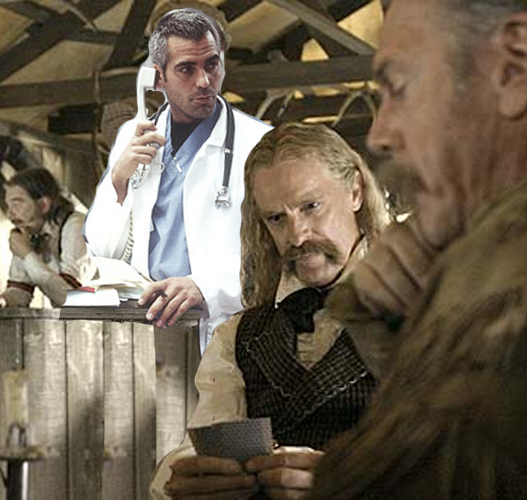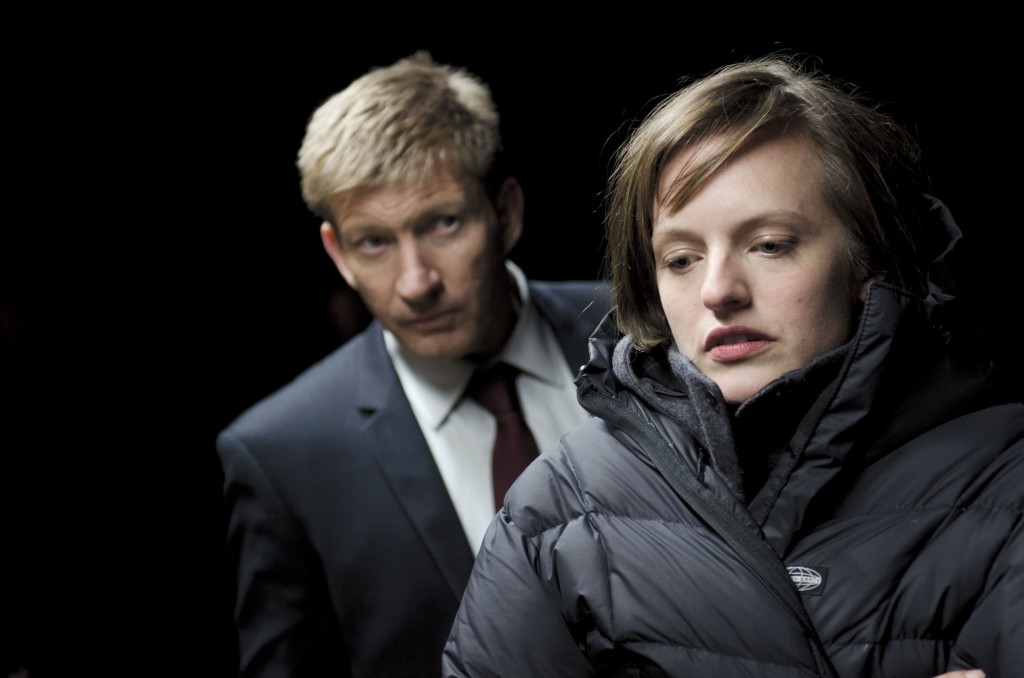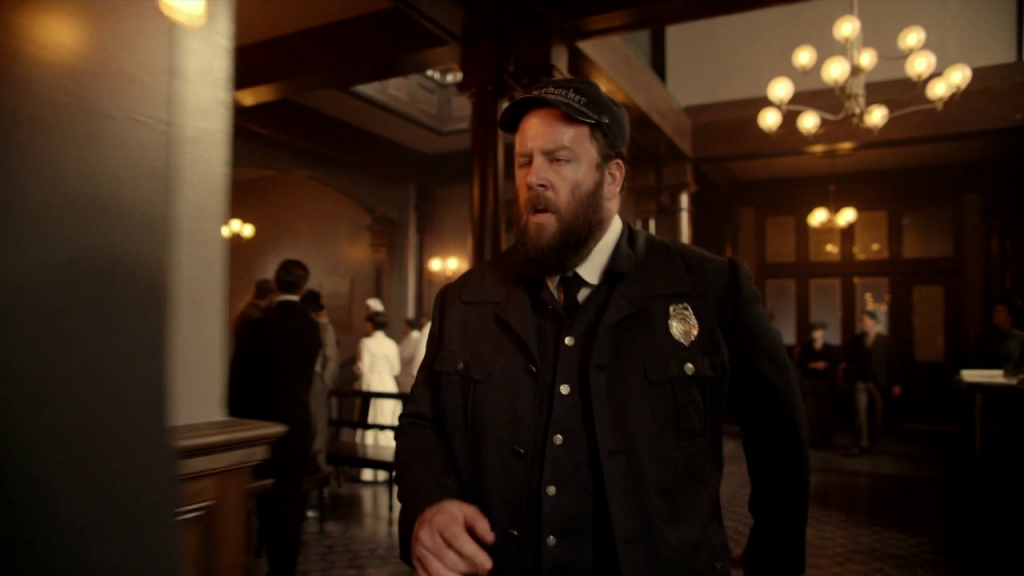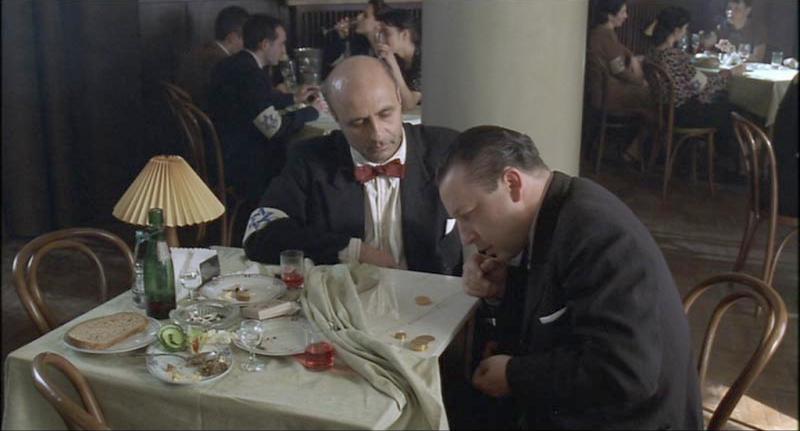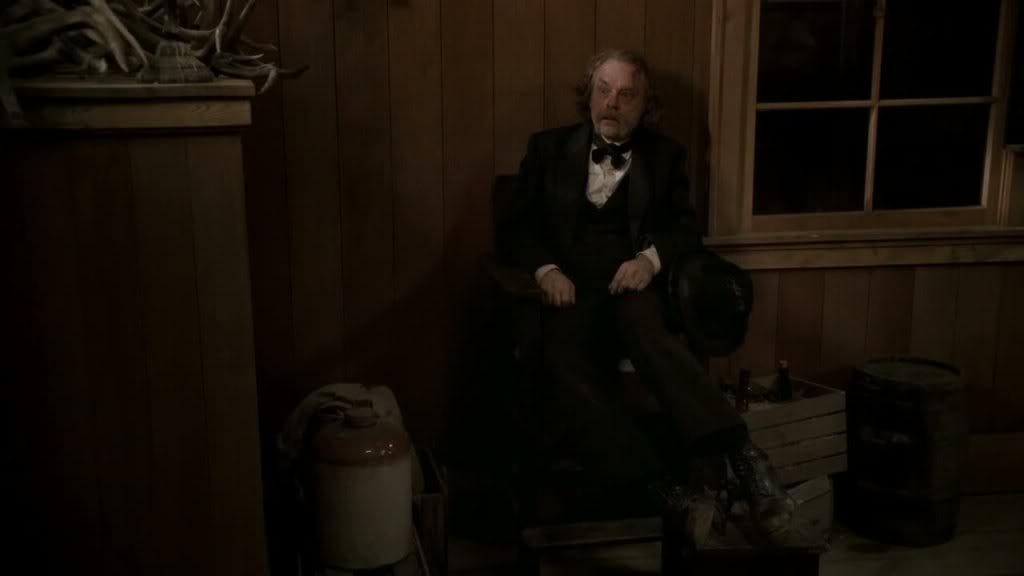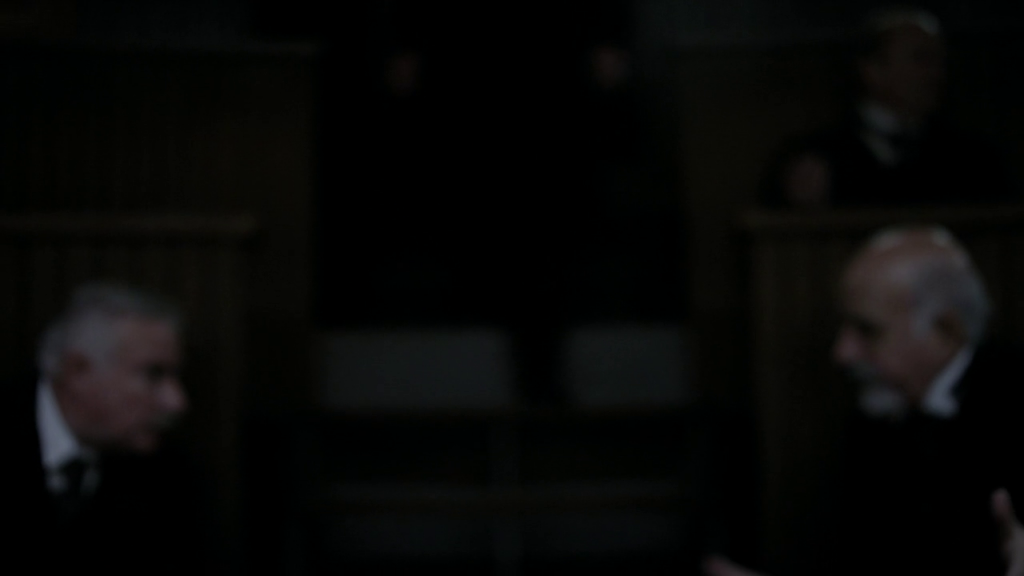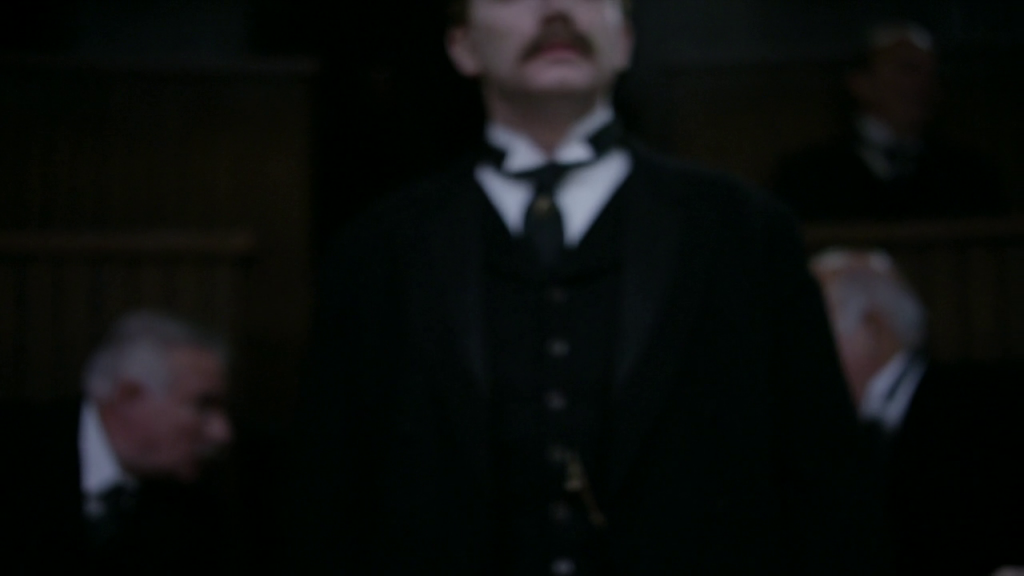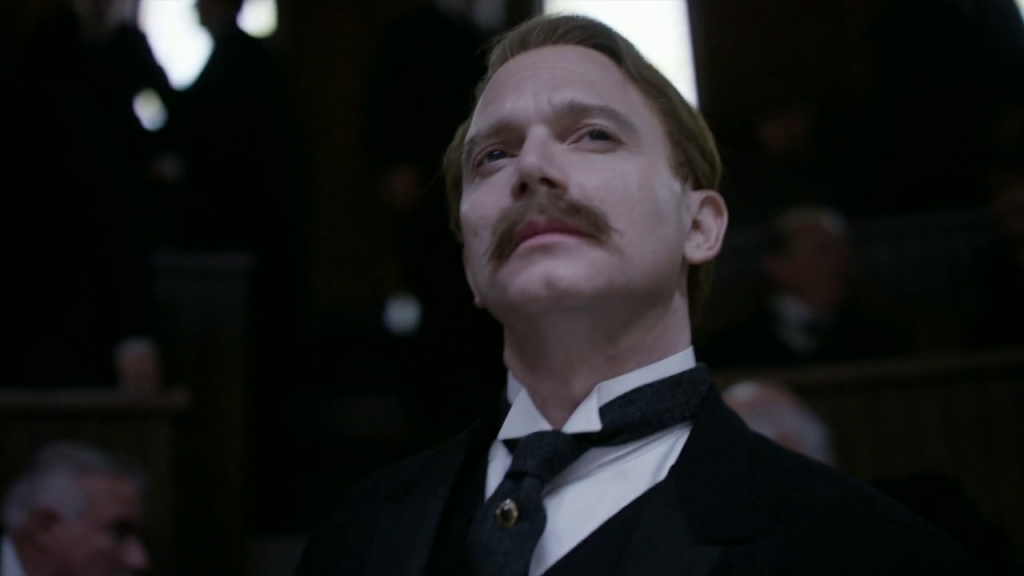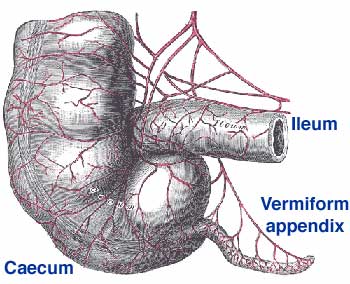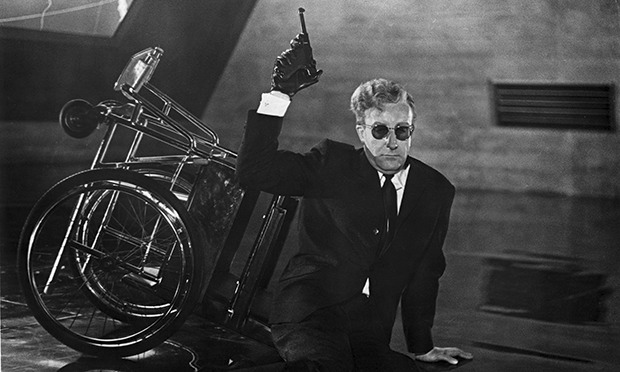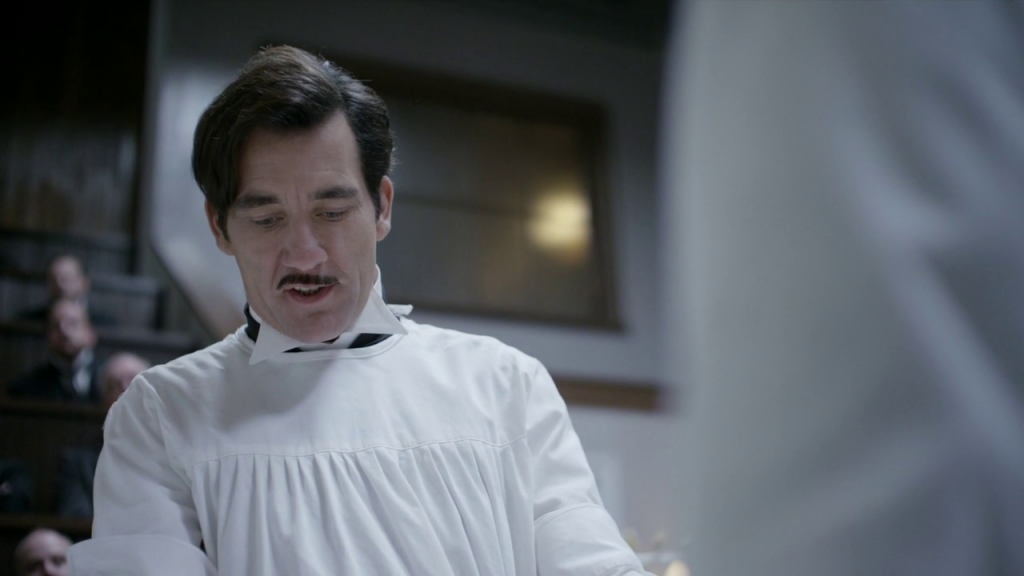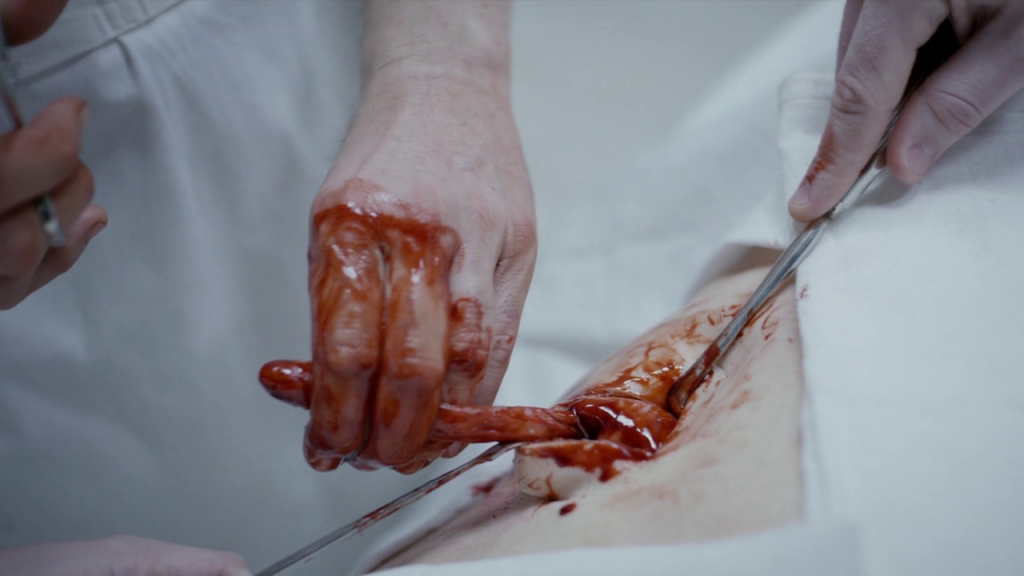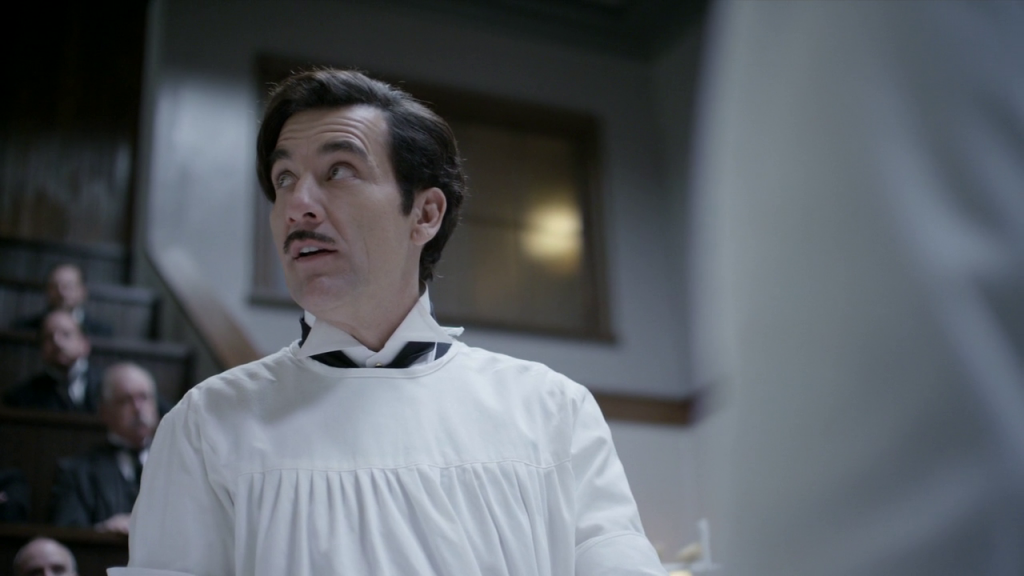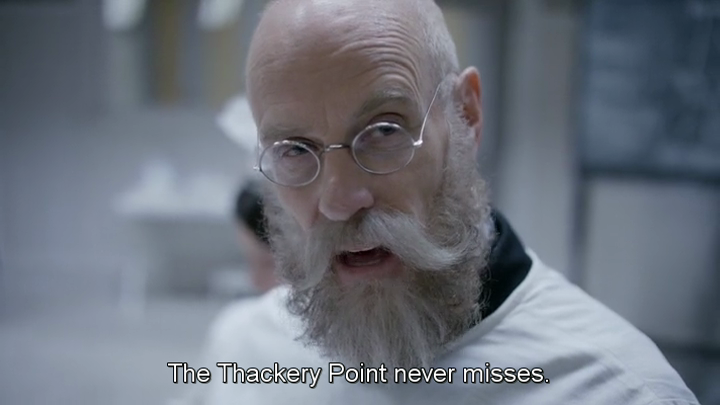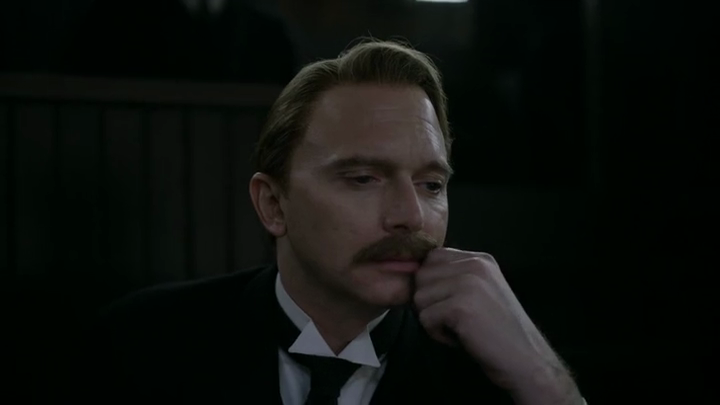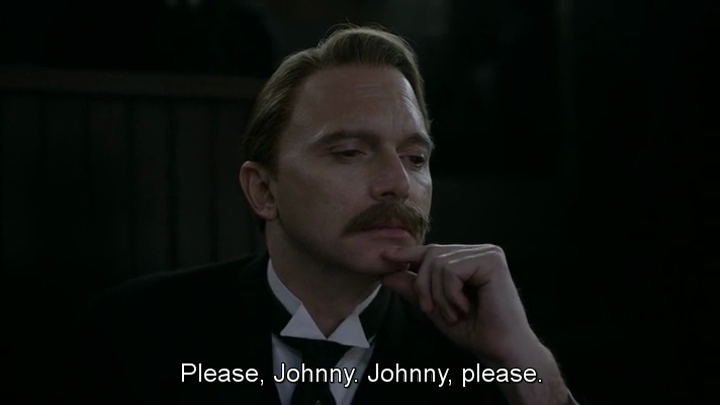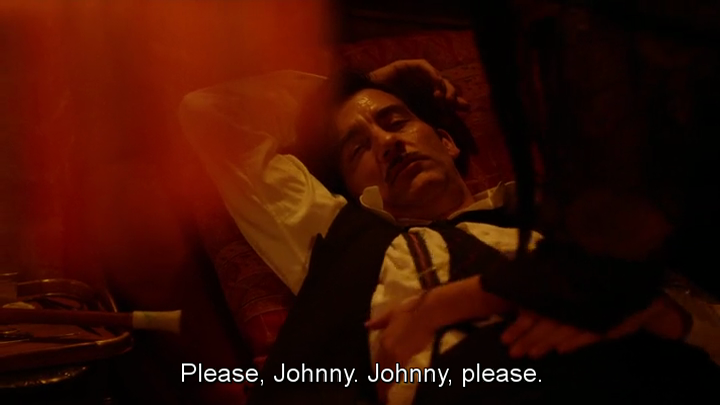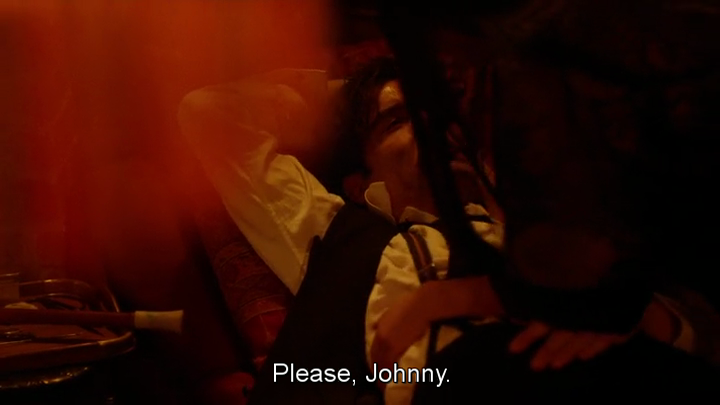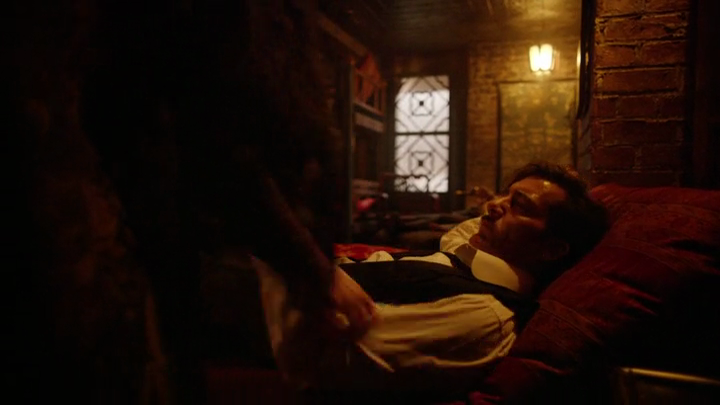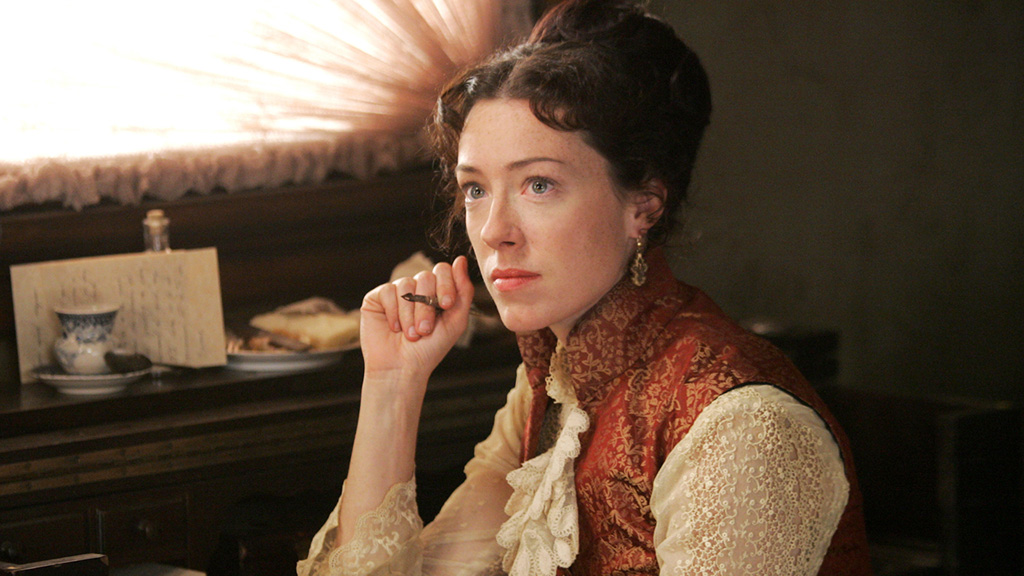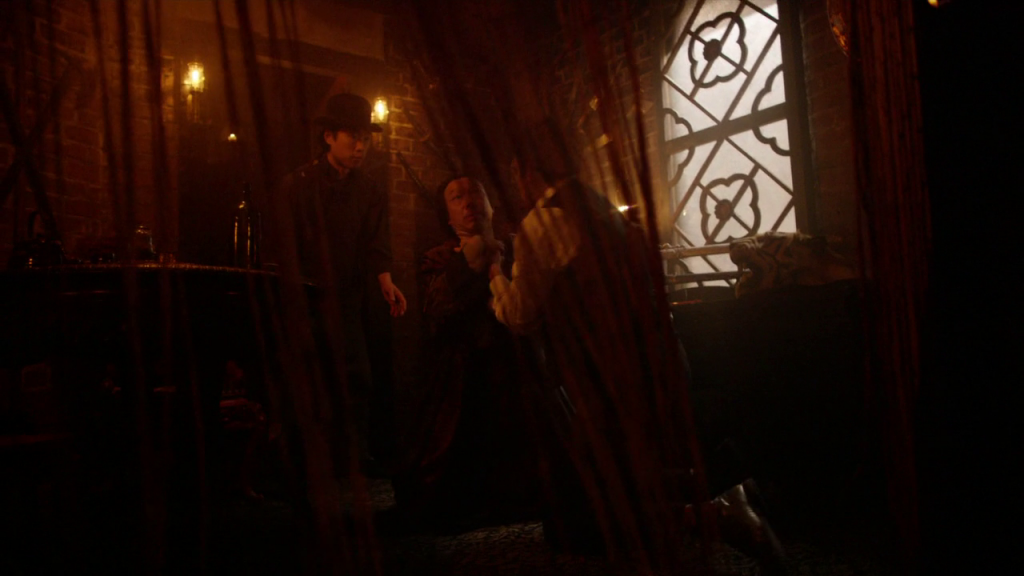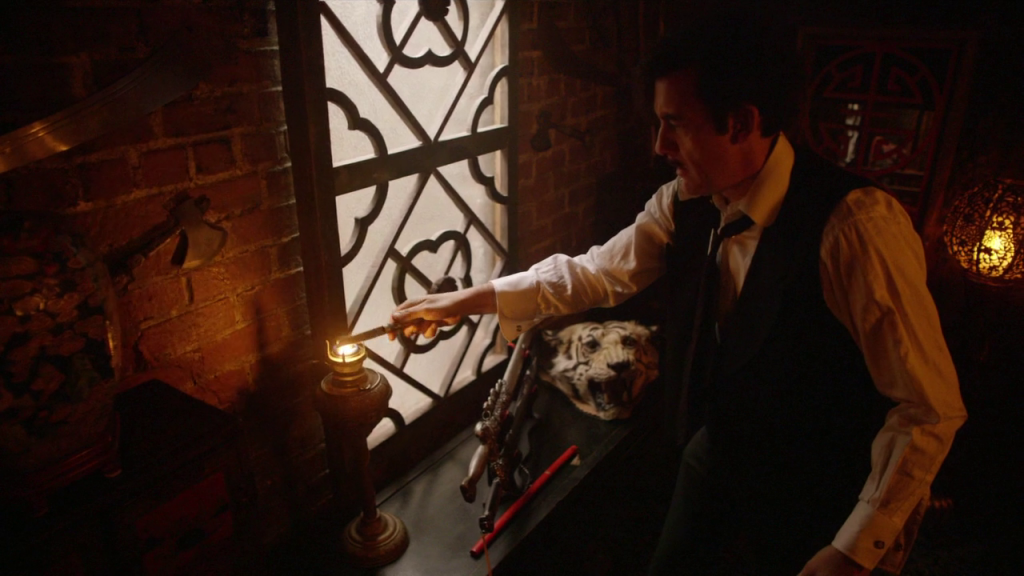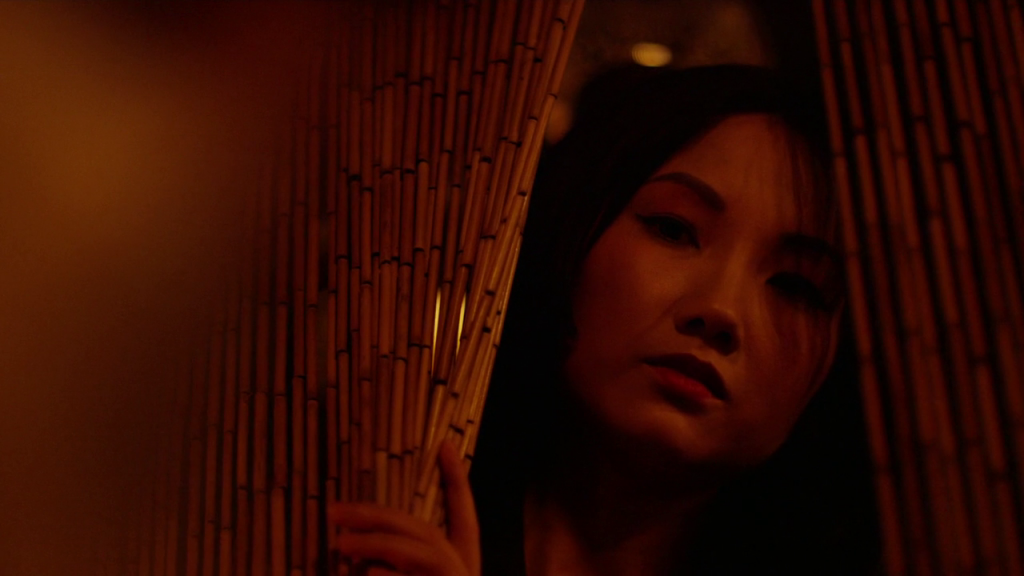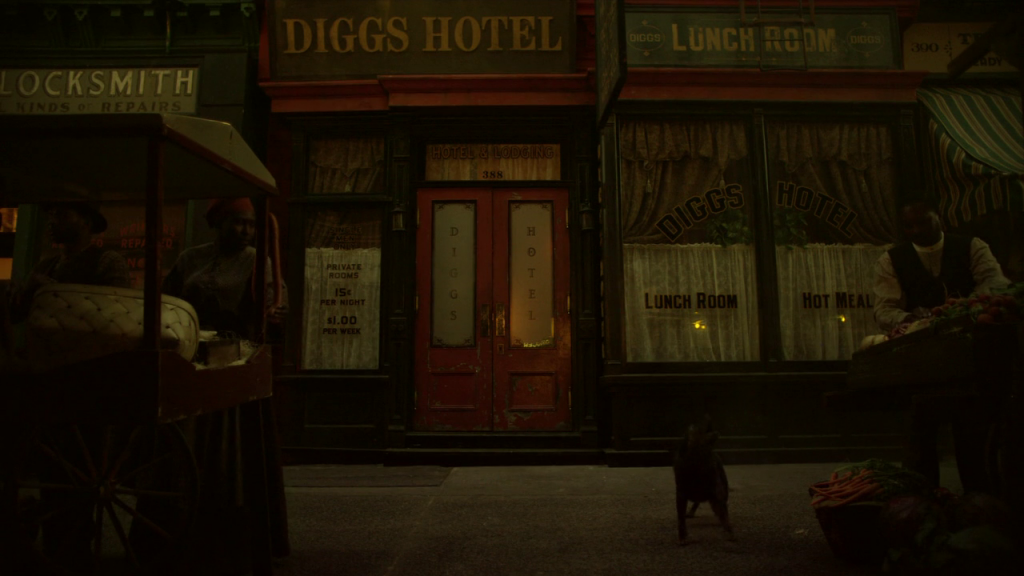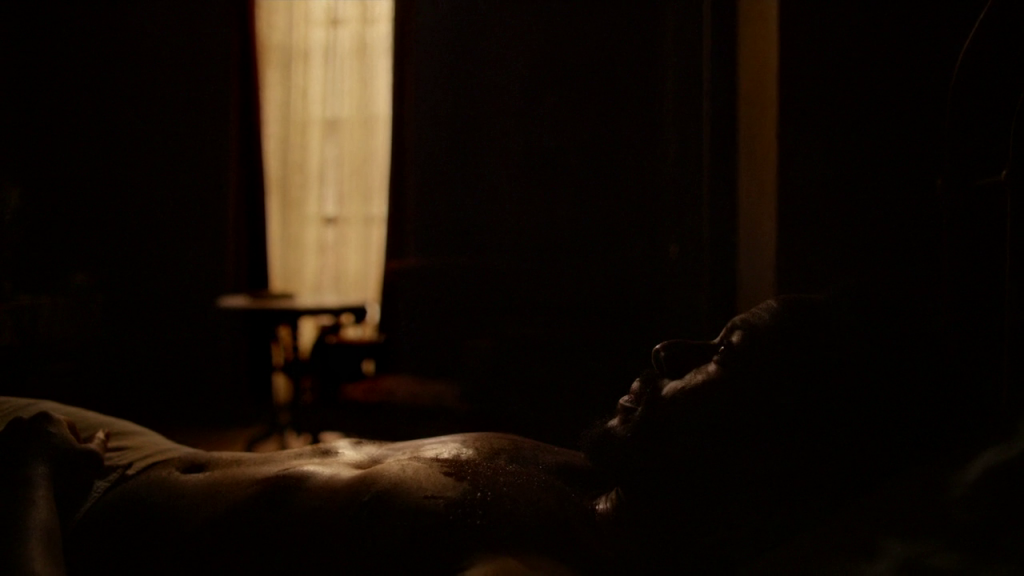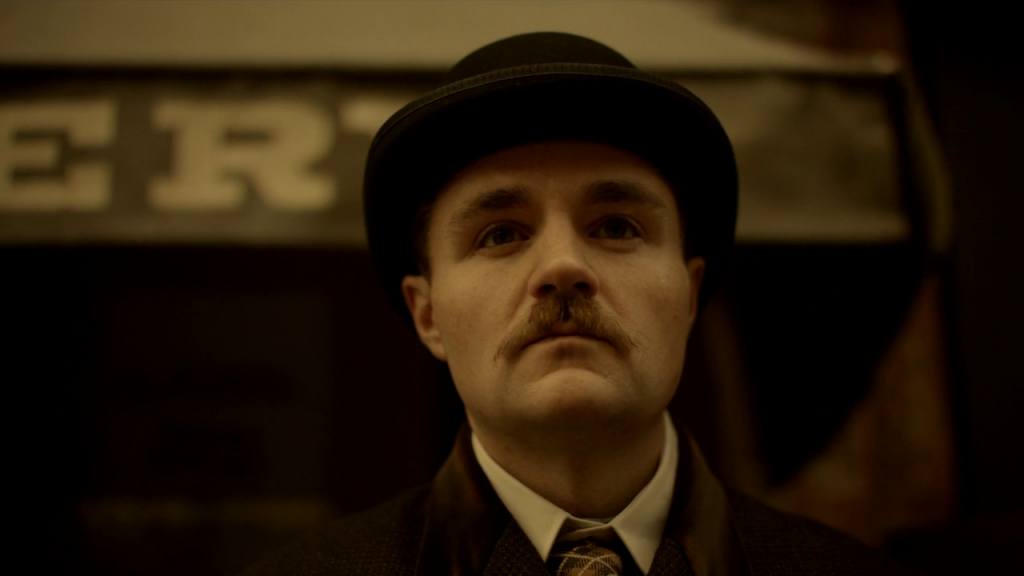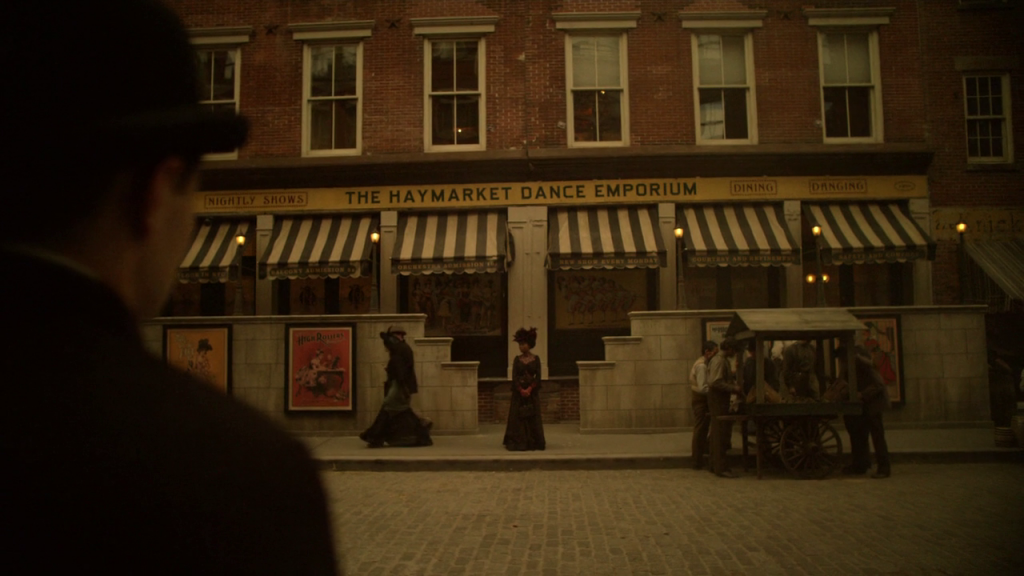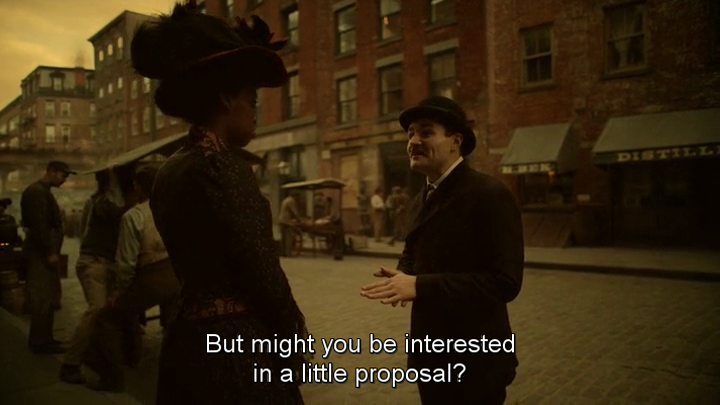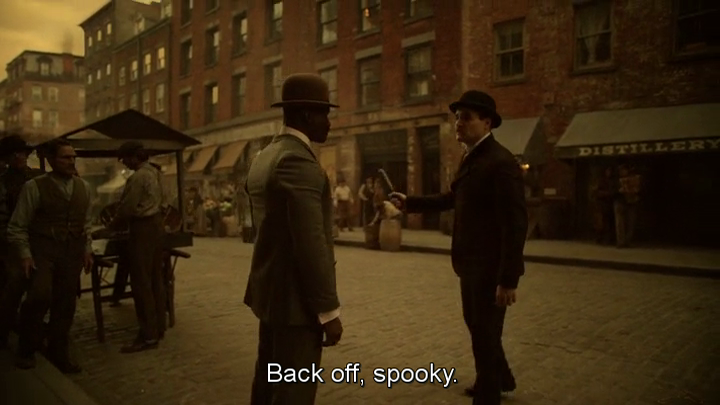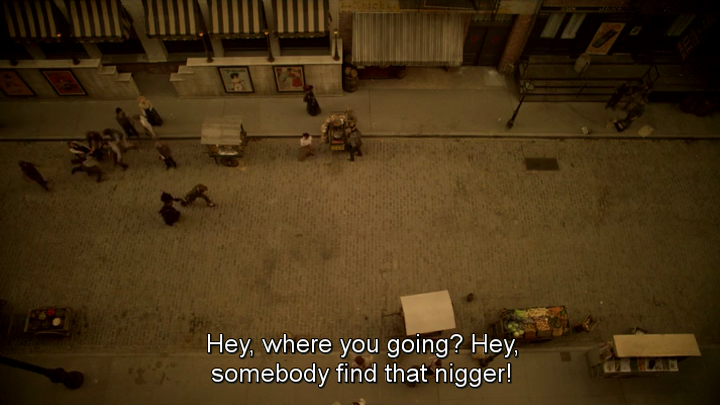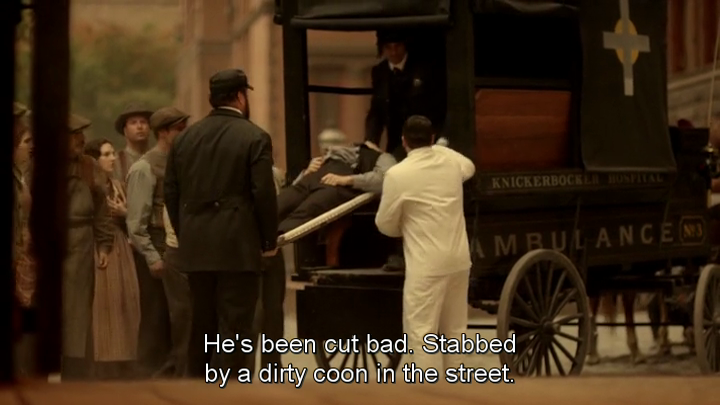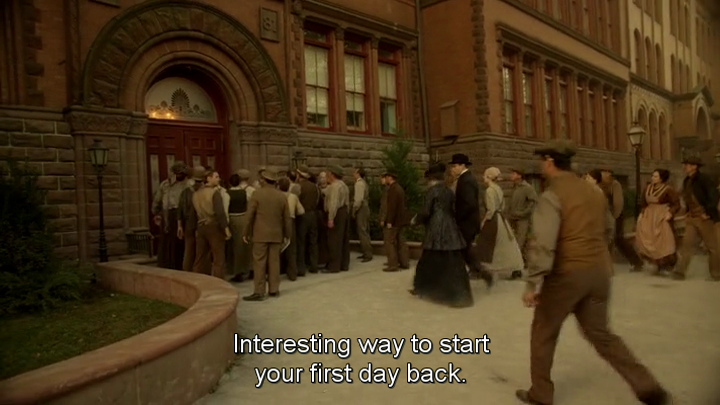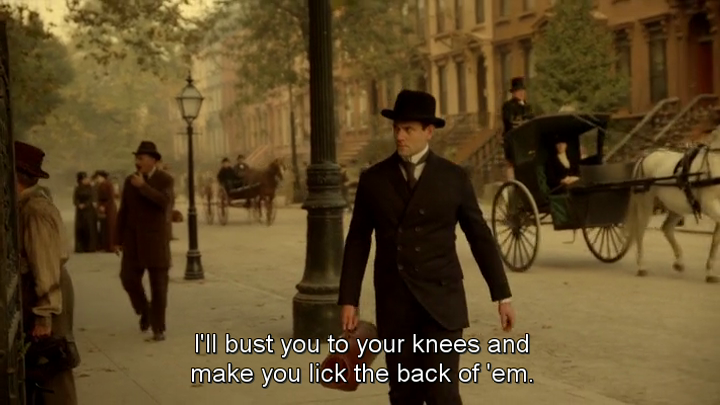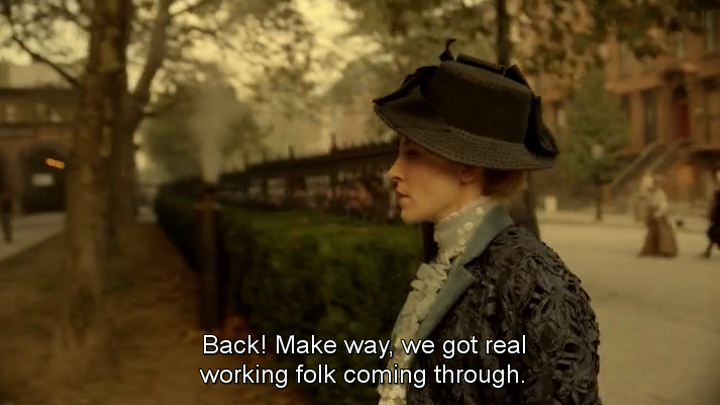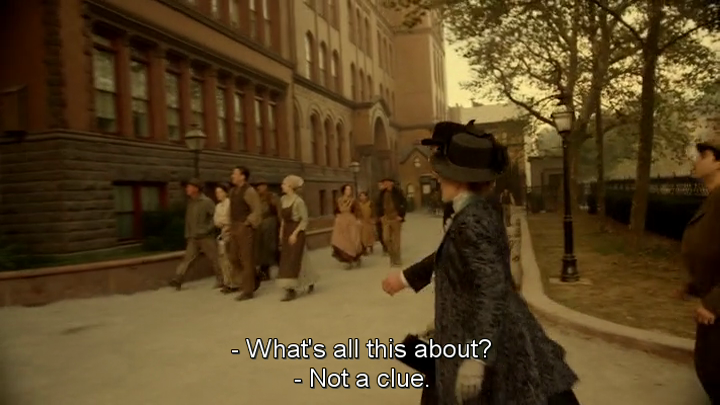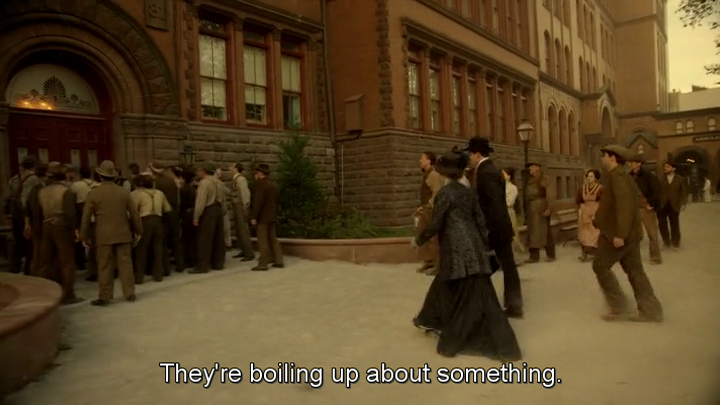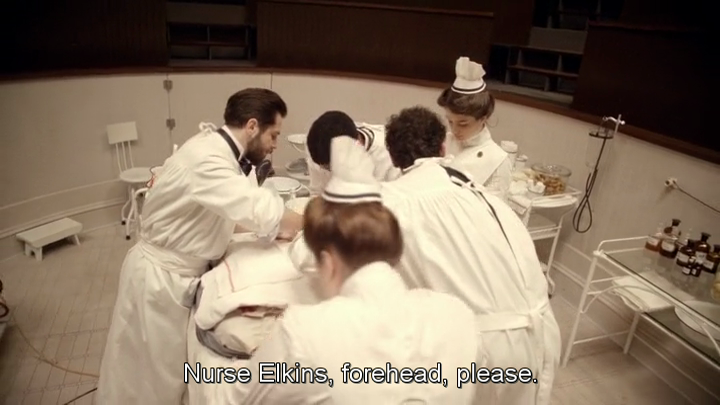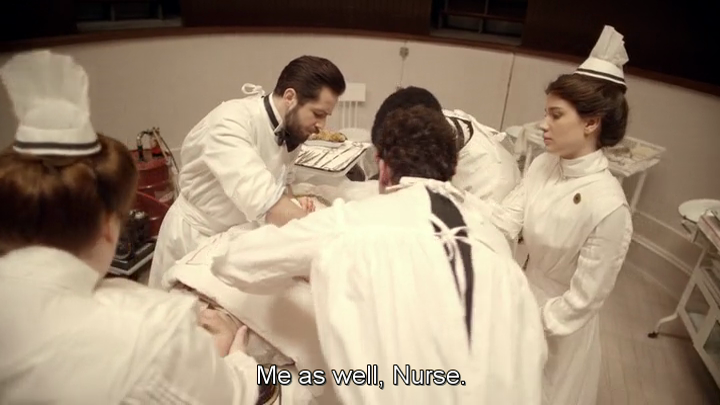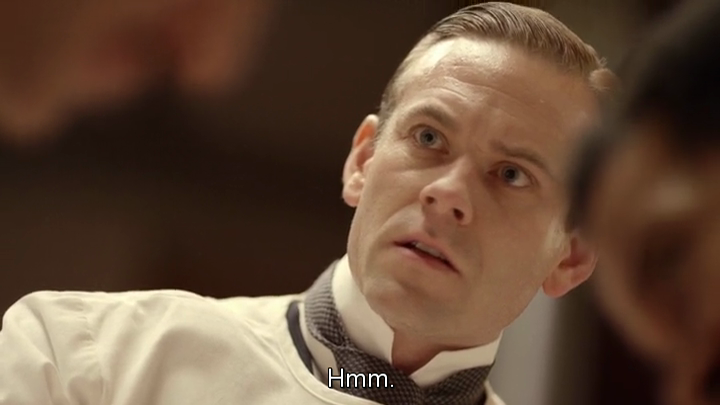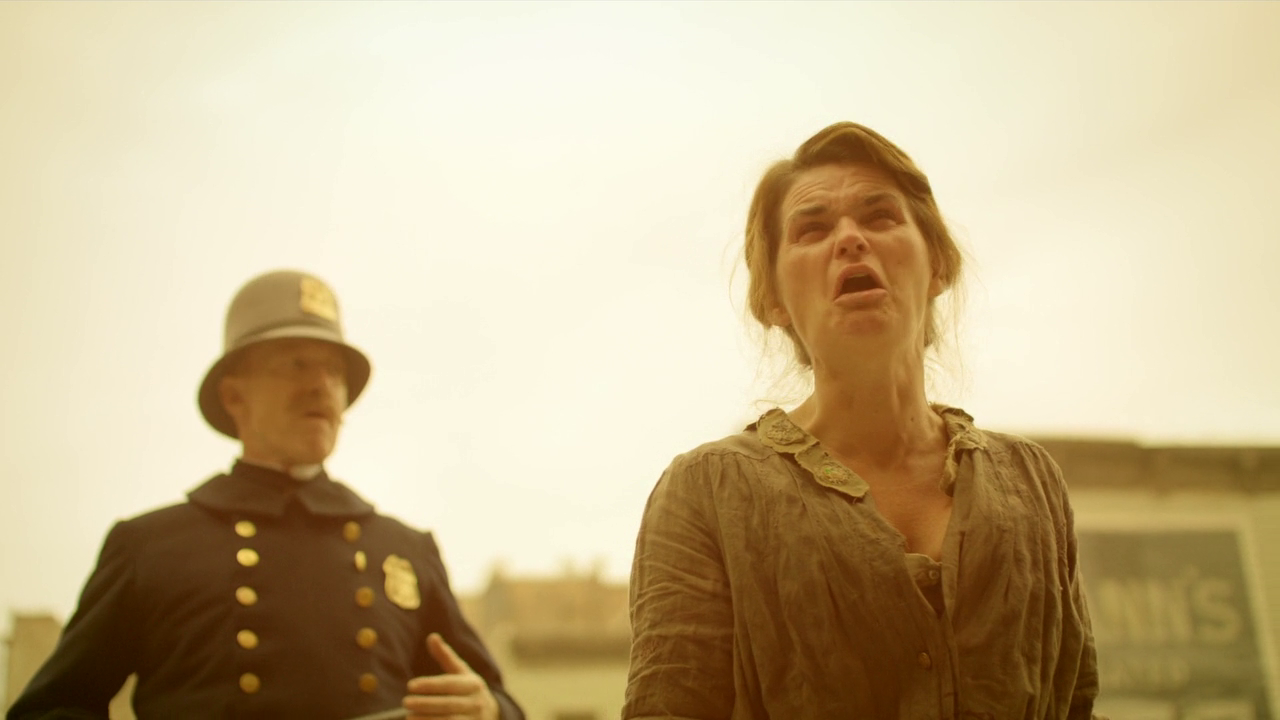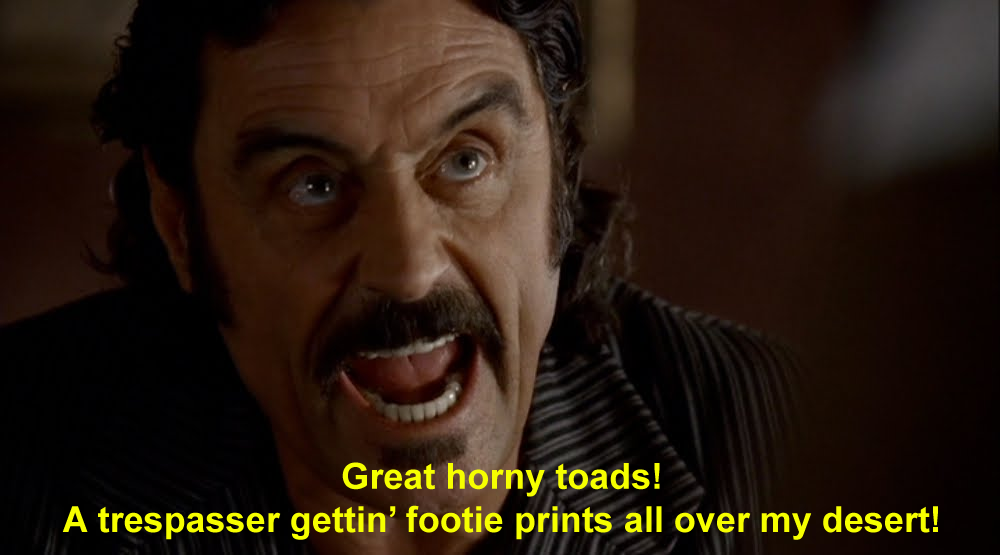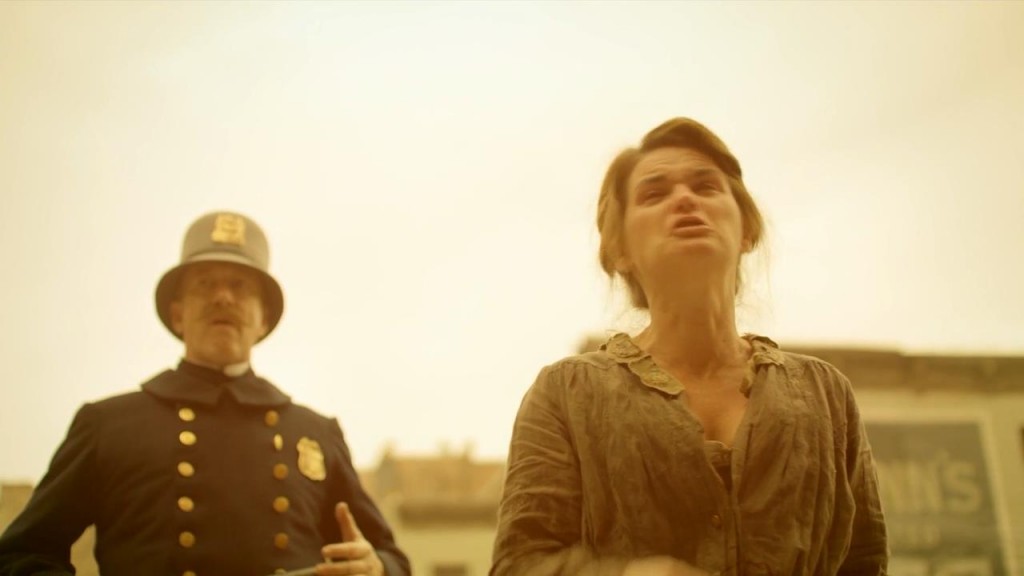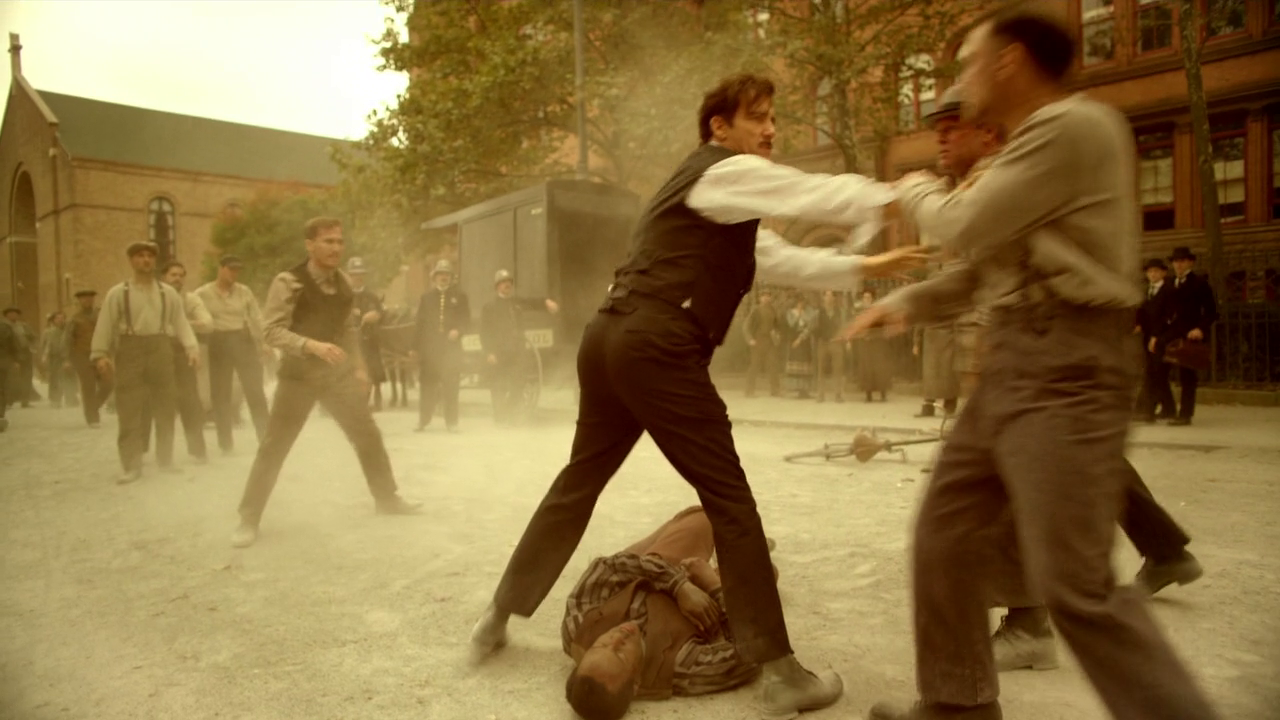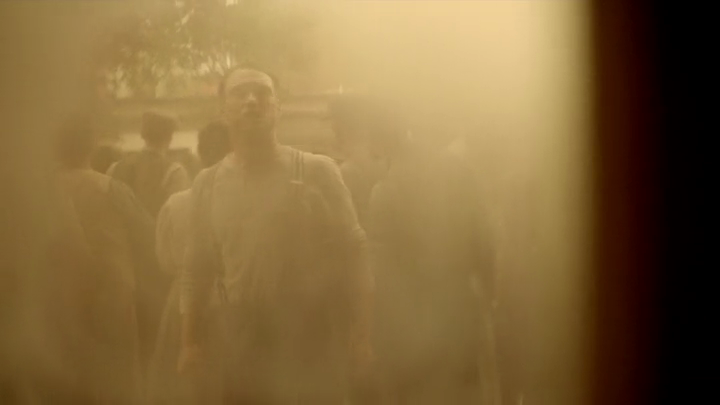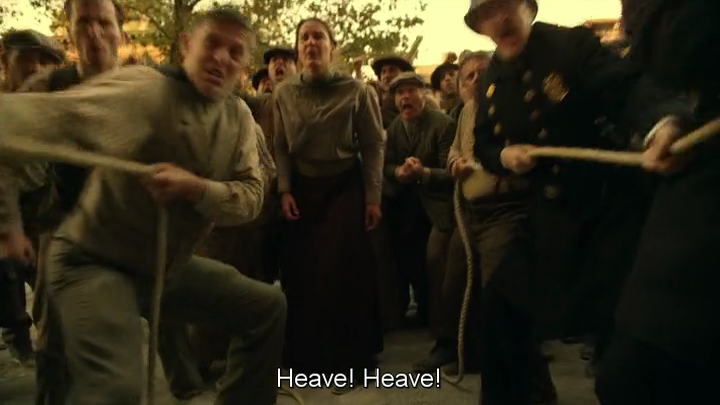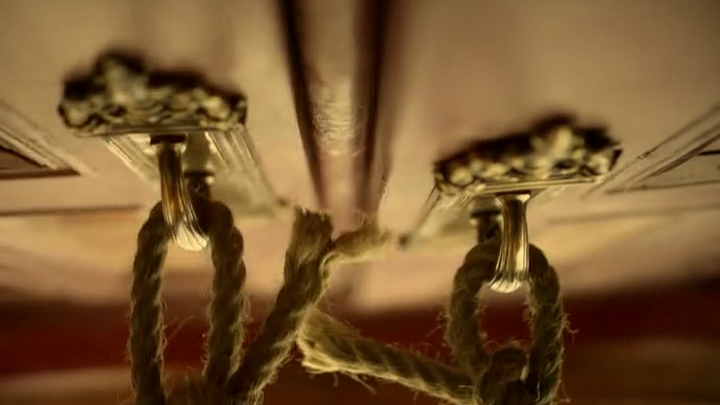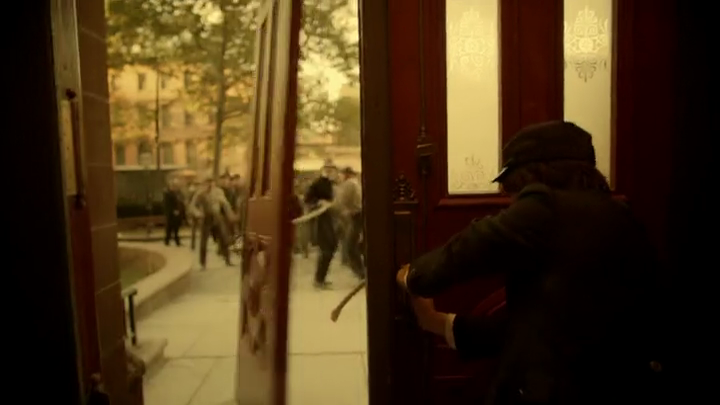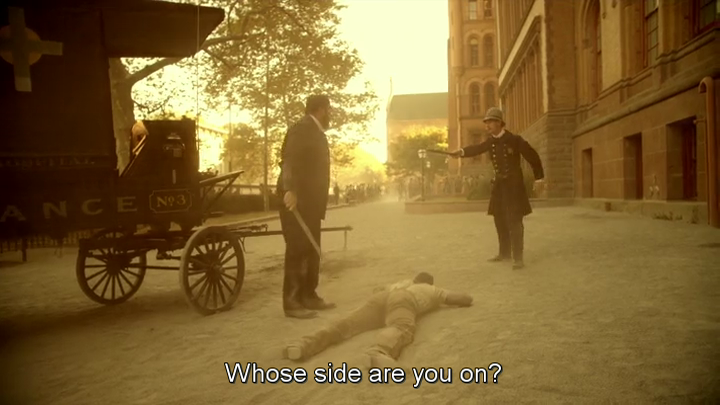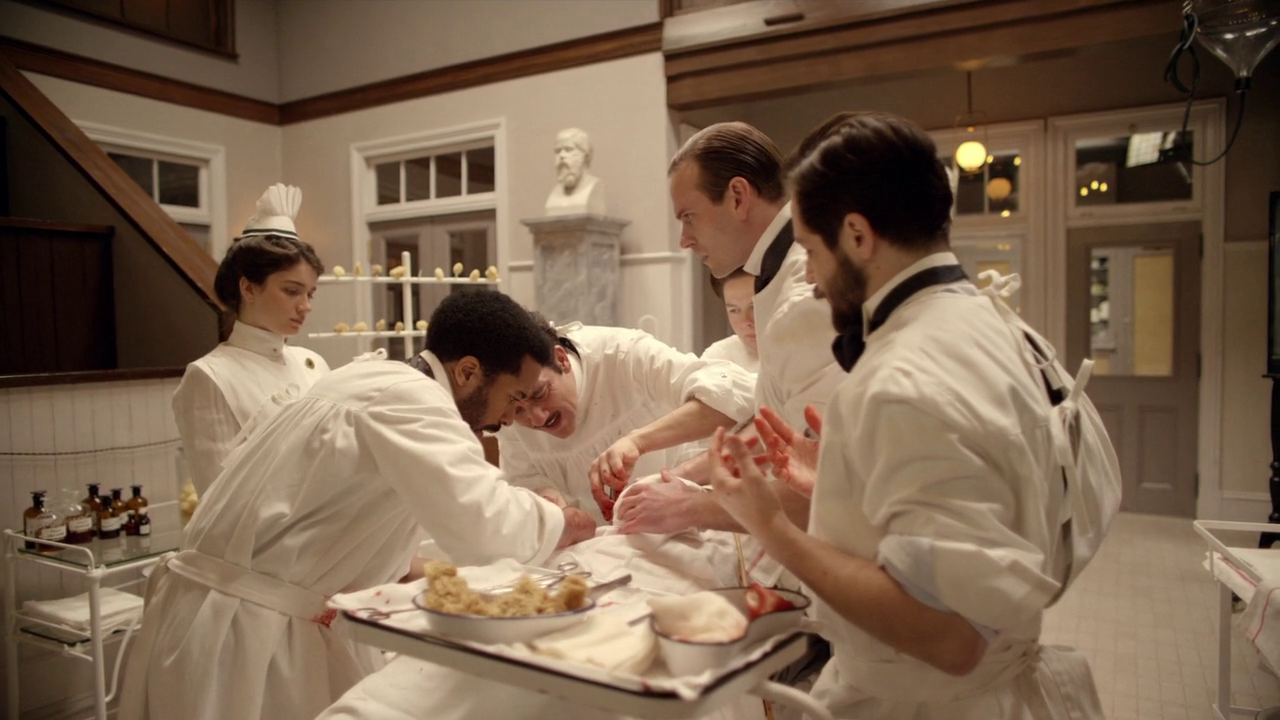History is a chamber of horrors, and it stretches back as far as you care to see.
The only purpose history serves is to inspire particularly brutal fiction and to remind us of the hell that far too many people are still trapped in today.
The Knick knows.
In case you haven’t heard of this show, let me tell you about the Knick. It is Deadwood + ER. This is what they wanted to make, this is what they made, this is what I wanted, and that is what I got.
Now that TV shows are evolving into long movies, you’re getting prestige projects from quality directors. Everybody knows about Top of the Lake, which was Jane Campion with True Detective‘s visual team. Nobody watched it, because it just wasn’t that exciting.
Prestige directors, everybody. Now Steven Soderbergh, who is one of those names that you and I should probably know, is doing prestige period TV about a doctor in New York City in the year 1907. And since it’s done correctly, it’s brutal as can be.
Interesting choice of words there, though. “Can be.”
Because we can’t really tell the truth. We can’t even get our minds around the truth. And that’s true in so many ways that we can’t even count them.
One horror of history that’s hard to show is that some people liked it. And I don’t mean just the big white illiterate bearded male bullies, the reliable bad guys for every period piece from now on forever, usually Irish.
In real life there have always been people of every race creed and color who like things the way they are, even when the way they are is really quite bad, and from the modern point of view that’s creepy as hell.
You can do a movie about persecution in the ghetto of Warsaw but you can’t really show the scariest truth, which is the sweet little Jewish kid who thinks its great. You can’t show the slaves who were in favor of slavery, the women who thought women should stay in the kitchen, the gay people who thought they were better off in the closet, the jews who thought the Nazis had something to say. It’s scary as hell to even consider that they existed.
I don’t mean the creepy moneychangers at the beginning of the Pianist, either.
Those guys, we can understand. They’re just selfish scum. It’s just evil.
What we can’t understand is the person who isn’t evil, just plain old wrong. The person who honestly votes against their own interests. Even though we’re American, we’re surrounded by them, we still can’t quite imagine it. Even though we all have that great grand-aunt who is just fine as long as you don’t get her started talking about Hitler, we can’t understand how somebody can be a perfect and wonderful human being from one angle and just accidentally and incidentally the literal face of evil from another. It’s hard to understand how an intelligent and sensitive human being can be that wrong.
The truth is that the human need to pick a side is stronger than the human need for self-preservation, and that produces weird results. The literal and historical truth is that there were slaves that fought for the Confederacy. Not many, but that’s the point. However many there were, we’ll never know, because they are invisible to fiction.
They can only be recorded in the driest of academic literature. Let’s say there was a slave who fought for the Confederacy. Let’s say he fought heroically.
Nobody’s ever gonna make a movie about him.
If you ever want you and your entire family to disappear, from all human hearts and myth, then all you have to do is betray your cultural affinity group and pick the wrong side of history. Presto change-o, in a hundred short years no one will be able to bear to think about you.
Because nobody likes an Uncle Tom.
So we’ve established that, when recreating the past, there’s at least one thing we can’t say. We can’t deal with the fact that good and decent people were completely and utterly wrong. By modern standards, by enlightened standards, by any standard you can name, they were wrong. And maybe they should have known better!
But the fact is, they didn’t!
That’s a problem for modern viewers, because we, the audience, need people to root for. We can’t handle people who are good people but honestly think that gay people should be lobotomized. Even though people really used to think that, we can’t deal with it. We know that the past was entirely populated by people who are, from our modern perspective, Bad Guys. We need good guys, and that means good guys by OUR standards.
Deadwood, the first of the the modern forays into the past, solved this problem brilliantly by making the doctor the modern good guy. And making him a drunk.
As a doctor with a drinking problem he is the perfect vehicle to view the suffering past. He has a flaw that we can understand, and the insulation of alcohol explains why he doesn’t go insane every time he sees somebody beat a starving child. He’s sensitive, he’s like us, and so he drinks.
However, he’s a completely unhistorical character. He’s practically a saint by the standards of the day. He just goes around doing good and being right about everything. It works because everybody else on that show was so busy being profoundly flawed that he didn’t get much screen time.
Great solution!
But obviously not going to work in a show about doctors.
Today We Are Removing The Appendix
So we begin with the appendix. The Knick, Episode 7, “Get the Rope.” The race riot episode, the episode in which the dark cancer at the heart of the American dream is identified and symbolically excised.
Ladies and gentlemen, the appendix is a part of the body that is just super cool and nifty.
Basically you, yourself, the person who is reading these words right now, you are carrying around a gutful of good and helpful bacteria, productive citizens in the nation of You. Sometimes shit goes awry, literally in this case, and bad bacteria get up in your gut-pouch and sort of put your helpful citizens to fire and the sword. It sucks for everybody, especially you, because you get sick as hell. When the Intestinal Vikings invade, the good citizens of your gut take what they can carry and retreat to their castle on the hill, which is your appendix.
One assumes there is some sort of selection process, where the most “valuable” bacteria are saved. Valuable to who? Something inside you decides.
Now, sometimes your inner Dr. Strangelove goes astray and lets bad bacteria in, and the global thermonuclear war in your gut gets into your own personal intestinal panic room, your appendix. Then all hell breaks loose and the appendix gets infected and you can plan on dying if somebody doesn’t get that appendix out.
So, for most of history, you would just die, and if somebody bothered to cut open your body (or maybe wolves ate part of it, the past was rough) they would see your appendix sticking out like a big black finger. So fatal appendicitis was the only way that presurgical cultures knew the appendix at all, because the organ only works when something’s wrong.
If you don’t know what you’re looking at, you can confuse the fire department with the fire, and they didn’t know what they were looking at. They decided that since appendicitis and the appendix were always found together, the appendix was just bad. It was an evolutionary atavism, it had no place in the body, we were better off without it. It got to where surgeons would just pro-actively clip it off if they happened to have the torso open for anything else. Thus dooming their poor client-victim to a lifetime of greater digestive upset, but that’s another story.
The appendix is the perfect symbol for the doctors of this show and the medicine of this time. Because removing the appendix was tricky and difficult and required great knowledge and was still the wrong thing to do and should not have been done but they did it anyway because of their fundamentally flawed and limited view of the world. Perfect! They don’t know what the appendix is, they don’t know what it does, they misunderstand it completely, but they do learn how to take it out when it is a matter of life and death, and that’s better than nothing. When the chips are down they’re better than nothing. That’s the best the past can give you.
Our hero, moustache doctor Thackery, is chasing the dragon in Chinatown, because the price for any sensitive modern man trapped in the past is drug addiction and tawdry sex. Opium addiction is perfect, because
1. You get to hang out with Chinese people and prove that you are not racist.
2. That’s what David Milch did in Deadwood.
So Thackerey doesn’t smoke the wackery tobaccary. But he does wake up from his opium reverie (dream? Memory? If you ever watch the show, my money is on memory, because the show is pretty funny and later old Thack really does go into a cocaine frenzy and he accidentally does kill a patient or two, but having him cut somebody open and pull out the wrong tube because of an operation he came up with in an opium hallucination is too funny even for this show), and he does have to partake in some hackneyed chicanery.
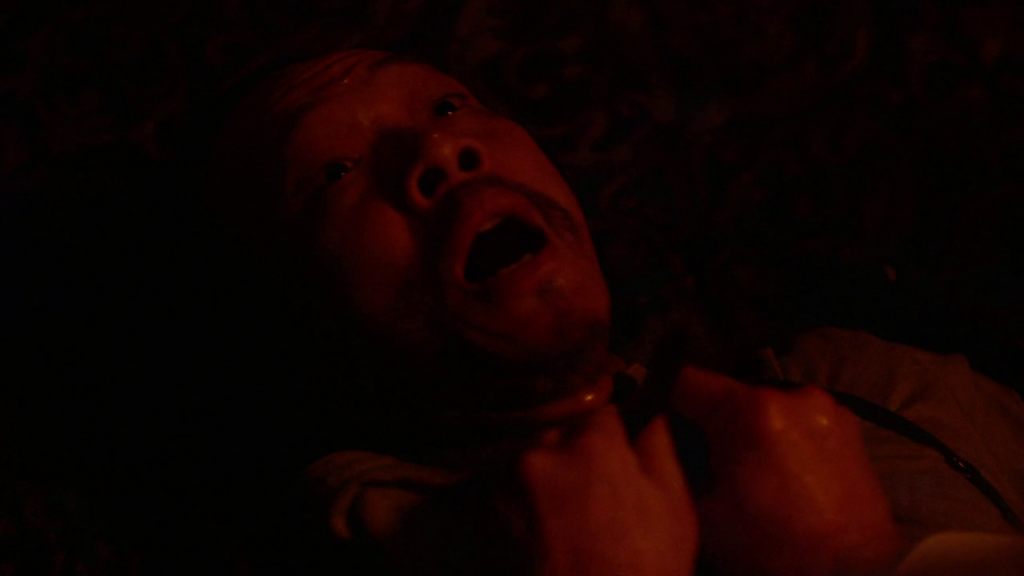
Tracheotomies are the surgery most convenient to television, so they’re the surgery we see the most.
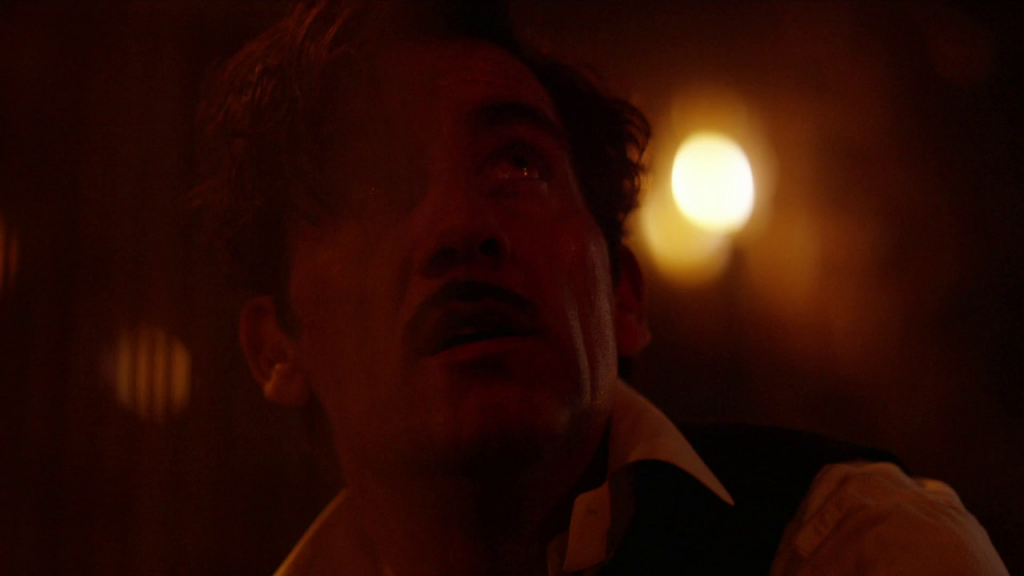
“Load up his bowl, he’s going to need something for the pain.
……………And, er, could you load up one for me?”
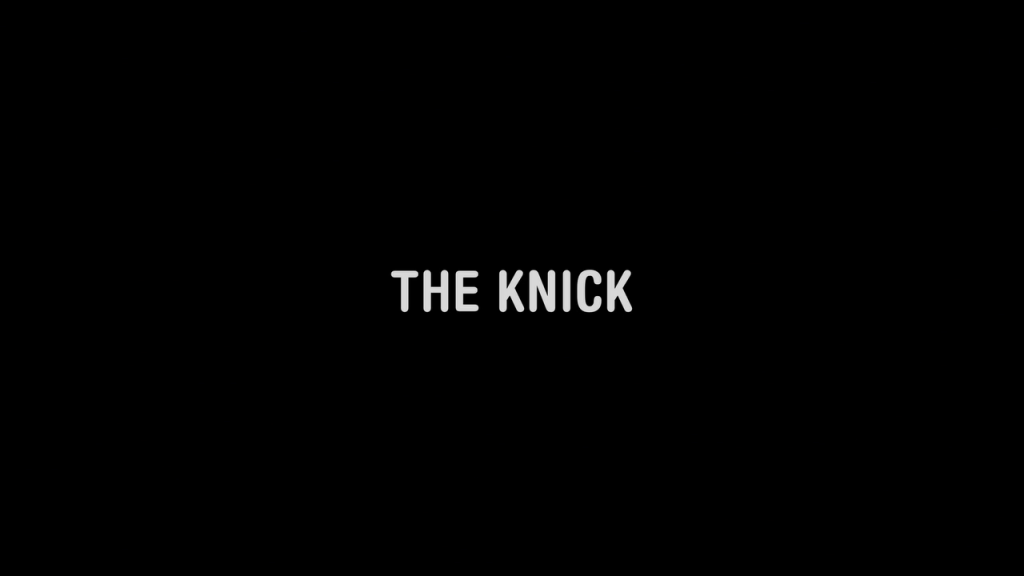
Note the prestige lettering on the titles. Since this is a prestige show, I bet if if you watch that last scene over and over again there’s even an explanation somewhere why that guy needed a tracheotomy.
Democracy As Zombie Movie
The before-credits scene is there to set up the modus operandi for the whole episode. A short moral situation is presented — a man lies in sin, dreaming ineffectually of greatness. He is awakened at a time of need and puts aside vice to act heroically, but his lapse back into sin is almost immediate. And now we see a longer version of the same thing. The symbolic machine of the episode has been established — you have this story, it is a machine that runs on the raw fuel of your attention and filters it through a parable called THE KNICK, which produces desired artistic (and hopefully moral) results. You’re supposed to watch the Knick and Learn Something About The Past and go forth and sin no more or at least slightly less.
So, now that we turned on the Moustache Machine, what situation shall we apply to our imaginary Doctor Thackery?
Note the dog, the completely darkened figures, the only light through the door. There are three people in that shot and you can’t see any of them. They’re carefully dressed in background colors.
Film only works by recording light, and this has led to problems in the past because it’s hard to show who’s rich and who’s poor sometimes. A mud shack will look wonderful in wonderful light and a mansion will look like crap in bad light. Soderbergh knows that if you want to make a place look run-down, take any old place and film it in the dark.
That is our flawless hero doctor who has been carefully persecuted over the last six episodes because of the color of his skin, and the color of his skin shall be the lesson of the day.
Because he is a black character he has to be better than all the other characters so he is better than everybody, he’s every bit as good a surgeon as Thackery but instead of being mean he’s nice and instead of taking opium he’s a boxer who beats up people when the episode’s going slow.
He’s a bit of a Mary Sue.
But that’s okay, because it makes the story run smoother. No audience member less meta-critical than yours truly could possibly have a problem with this guy, not unless they were racist or something, and the characters who are racist against him will meet a gruesome fate. We’ll get to that.
Also funny because this guy’s about to go to the E. R. Film can be the art of telegraphing punches sometimes.
Because here’s what he sees:
I’ll tell you the truth; I despise this scene. It’s too heavy-handed to ever be historical. What they’re trying to present here is a scene where two people interact politely, but one of the people is as wrong as can be — so crazy wrong as to be evil. Which is accurate, and a good picture of how we should interpret the past.
But look at this. Nothing in the past, nothing in life was ever this neat and simple. Look at the streets. There’s no horseshit, no newspapers blowing around. It’s supposed to be sweltering hot but nobody sweats. The past didn’t look like this: go to shorpy.com and edjumacate, this was 1907 and we know what 1907 looked like. There was litter everywhere. Brightly colored trash is an unmistakable sign of human life.
Anyway, the cop has been established as an extremely polite and incredibly dirty cop. He walks over and tries to solicit that woman to work for him as a prostitute, and she is outraged.
The racial slurs are carefully staged on a path of escalation. The cop calls her a “dark one,” then her boyfriend calls him “Paddy,” then he retorts.
In less time than it takes you to read this sentence the cop’s been stabbed in the gut and left lying dying on the street.
It’s of technical interest that they keep changing which racial slurs that they use. I think the past was maybe like that, but you probably had a lot of people who just repeated the same one a lot.
So once the word gets out that a cop has been stabbed by a black person, even though he was carefully stabbed in such a way that no modern audience could reasonably object, these wacky paststers booze up and riot.
These horrors of democracy are given the most disrespectful treatment that they can be given on TV — they are dressed up like a zombie movie.
It is a historical fact that there were mobs of racists back in the day who did racist shit. But we don’t really want to get into detail about what they sounded like, because that would mean some screenwriter would have to spend hours writing really racist crap into a script, and then the actors would have to repeat it until they got it right, and then the sound editors have to record it and edit it, and the editors and the directors have to listen to it a million times — it’s unpleasant for everybody. We don’t really want to hear what lynch mobs have to say. So they don’t get any faces, they don’t get any names, they don’t get any identifiable dialogue. They are only glimpsed through windows, which, just like zombies, they are somehow too stupid to break through.
Meanwhile, the doctor who is racist is returning from looking after his wife. His wife is his punishment for being racist, she is crazy and some really entertainingly horrible things happen to her. I forget whether or not that doctor learns racism is wrong in this season or if they’re saving that. But he returns and two things happen:
Not an accident. This is visual foreshadowing — the doctor is in the process of learning Racism is Wrong, but she is fated to be the next to learn. A slightly more complex lesson is in store for her. We won’t get to it this episode.
Next, this:
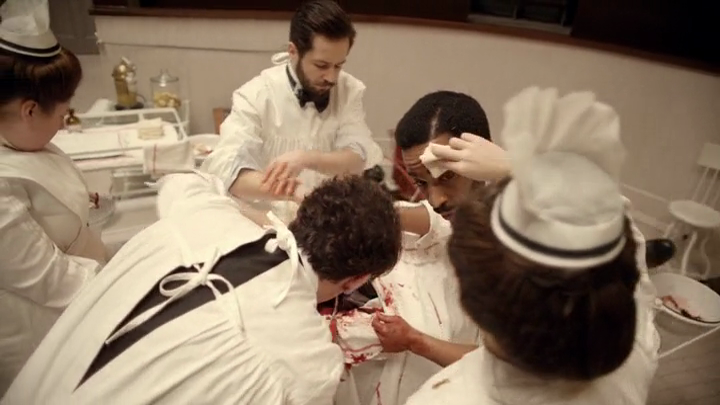
Nurse Elkins learns that not being racist about patting sweat off the heads of doctors is important.
They can’t save the racist cop. He dies in a fairly well choreographed scene that you will enjoy if you actually watch the episode instead of just reading about it on the Internet.
She goes on a bit of a rant.
There’s a serious problem with the language of the past. Deadwood had this exact problem, because originally those characters were supposed to talk in period language. They were going to yell and scream and curse exactly like the real people of the day.
The problem is that the people of the day sounded exactly like Yosemite Sam. They really did say “great horny toads” and “Blast!”
Imagine, if you will, Al Swearingen talking, like he really did, with the most vile and fearsome oaths, language that would make a lady up and fucking die:
Zounds!
So any time you’re writing about the past, you’re translating. Because the proper translation of “Zounds” is not “God’s wounds,” it’s “Holy shit!!”
There was nobody in the whole past who spoke the same English as you’re reading today, and everything you read is a translation, whether you know it or not.
People used words then that are terrible today. And we gotta deal with that. The n-bomb is the serious one, but I’ll point out that “retard,” recently promoted to utterly unsayable, is actually an old euphemism. It’s a French word that means “late.”
We are not prepared, as a society, to deal with how racist the people in the past were. We don’t even have a good way to understand how our concept of racism applied to them. It’s very carefully introduced here. The gruff-but-good-hearted ambulance driver is more archaic than offensive. The Irish lady, on the other hand, cuts loose, and it’s one of the things that I like about this episode that they pick her as the real villain. This episode is a zombie movie, and she is the evil lady who lets out the zombies.
Zombie movies are about a well-justified fear of democracy. Zombies are the mob. They are just like us, except stupid. They can’t even get through a glass door. There’s nothing that special about us, the survivors, but at least we aren’t them.
This episode is a zombie movie. A moral aberration is illustrated and then all the proper people are eaten. Combatants appear and disappear and do not speak. The Irish lady is the witch who looses the forces of unreason.
You know exactly where this is going. Exactly as much chaos as the film crew can afford.
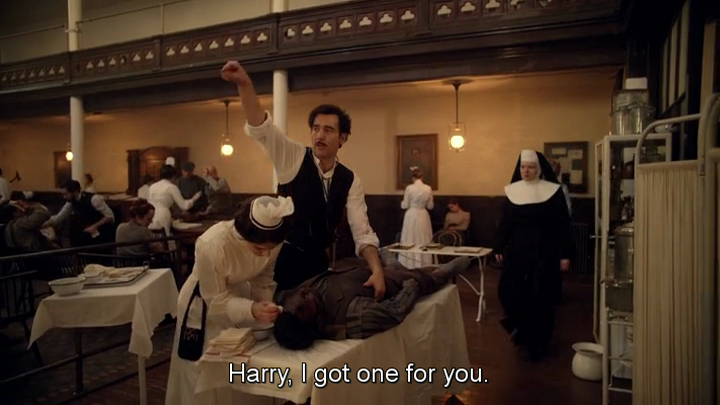
It is significant that practically none of the black victims of the race riot have any dialogue at all.
There’s a rather boring visual metaphor about rope that justifies the title of the episode without actually requiring the depiction of a lynching.
What’s the point of this? What’s the point of making an episode about lynching and then not showing a lynching, but a visual pun? Slyly winking does not make sense here.
I know the answer, and it is “economy.” They want to say much bigger things than they’re willing to take the time to say, so they settle for hyperlinking.
And yes, this is a problem that could be solved with a bigger budget, but it is also a problem that could be solved with better writing.
At the end of the day, the whole gang achieves racial synthesis, but in such a way that plot lines are left open for the next episode. One guy will stay racist and be punished for it. One woman will overcome racism and get laid. We will all learn a valuable lesson.
To be more precise, we all learned that lesson a long time ago, but this show provides a comforting reminder.
And some helpful facts along the way. Did you know that surgical suction was invented in approximately the time period of this show?
Call me cynical, but nobody is going to watch this show and decide to not be racist anymore. That isn’t the way advertising works. Advertising is crap for gaining converts; it works to remind the people who are already into it to go out and do more with it. Nobody ever learned for the first time that pizza existed from a coupon, but plenty people see a pizza coupon and decide to get some.
This show is advertising not being racist and learning about the past. It is not the sort of show that will win you over to that; it isn’t that sort of inspirational, it does not work as a bridge. However, if you are already into trying to not be racist and learning about the past, then this show will comfortably expand your body of knowledge without overtaxing you. It is comfortable fiction. All the surprises come at the expected time.
If that is your sort of thing, then this is that thing.
What else do you need to know?
